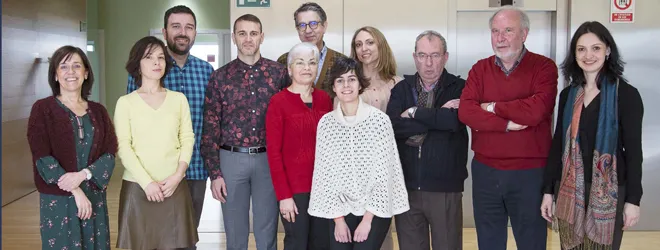The Astrazeneca Foundation has celebrated its first Living Lab 'Diabetes: we fight sedentary lifestyle', a pioneer project in Spain and framed within the chair of innovation in diabetes that teaches with the Institute of Biomèdic Investigations August Pi i Sunyer of Barcelona (Idibaps).
It is a unique activity in the field of diabetes aimed at promoting initiatives capable of transforming the lifestyle of people at risk of developing metabolic diseases.To do this, the fight against sedentary lifestyle plays a fundamental role is already one of the aspects that most influence the control and prevention of diabetes.Living Labs are spaces, designed at the Massachussets Institute of Technology (MIT), which congregate actors from the academy, civil society, the State and citizens to develop creative decision -making processes.
Specifically, this project, which has been carried out with the collaboration of professionals from IDIBAPS-HOSPITAL CLIENIC, of the Center for Biomedical Research in the Network of Diabetes and Metabolic Diseases Associated (CIBERDEM) and the University of Barcelona, has had 10Participants, all of them from very diverse fields such as architecture, urban planning, teaching, botany, nursing, therapeutic education, primary assistance, endocrinology, research and management, including people who suffer from or not fromDiabetes, or that work or not in diabetes.
Through the different workshops and activities they have exchanged ideas from personal experience, seeking complementary synergies for the design of the concept of a change project;They have also identified key success factors, as well as challenges inherent in the situation.
The final result has been the creation of a novel project proposal to promote more active and healthy lifestyles in an innovative way, including: the neighborhood as a vehicle of change to implement exercise programs;actions at school;the social role of dance and its health value;the role of itineraries in the environment itself;the promotion of exercise through social networks with informative workshops;and support for physical activity from urban garden networks.In a second meeting of the LIVING LAB, the details of a selection of the proposed projects will be completed and the context in which they are, in order to look for ways of innovation and generate a work plan so that they can materialize.
In the words of Carmen González, director of the Astrazeneca Foundation “promoting a healthy lifestyle and avoiding sedentary lifestyle are two key factors for both prevention and control of diabetes.From the Astrazeneca chair, and thanks to initiatives such as Living Labs, we arrive at innovative and very novel methods in Spain that allow us to understand, help and, ultimately, be closer to the needs of patients. ”
The coordination of the Living Lab has been in charge of Ramón Gomis, director of IDIBAPS, who has indicated that “using the methodology of the LIVING LAB applied to a health problem, which affects both diabetes and obesity, and through a debate with adiverse collective that includes people who suffer from these diseases, health professionals and other foreign professionals but that can be key to implementing successful programs, new projects have been proposed, through the neighborhood, social networks and design itselfurban".Gomis has pointed out that “after the global design of these projects, they can generate new change opportunities that avoid sedentary lifestyle and that are useful to prevent the epidemic of diabetes that already affects 14% of the Spanish population.OfModifying changes in lifestyle could achieve a reduction in the relative risk of suffering the disease of up to 50%. "
The living LAB is a novel methodology, designed in the Massachussets Institute of Technology (MIT), through which people of very different profiles participate in an exchange of ideas from personal experience, withThe purpose of designing a common change project that generates new approaches.The success of Living Lab is given the ability to promote a novel project, capable of changing pre -established beliefs and breaking with routines.


